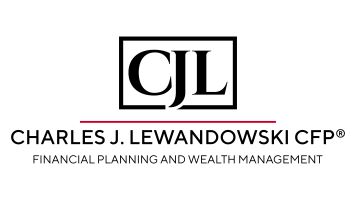Overweight in Company Stock? A Tax-Efficient Solution with a Feel-Good Chaser
By Charles J. Lewandowski, CFP®,MBA
It’s a great time for successful executives to participate in the stock market. Unfortunately, one of the unintended consequences of the superior performance of the U. S. market is that many executives find themselves with large concentrations of company stock. This lack of diversification adds risk to a portfolio while tax consequences cause an unwillingness to reduce the position. How can this be corrected?
Jane and John are executives at S&P 500 companies who are approaching retirement. Both individuals have one issue in common. They had large positions of Company stock which were accumulated through purchases, stock bonuses, and restricted stock awards. The stock runup since 2009 enhanced this overweight position. They both recognized the risk of having such concentrated wealth in their portfolios but struggled with a tax-efficient solution.
Jane had an additional complication. She had participated in the employee stock purchase plan at her company for over 20 years and reinvested the dividends. She had no idea what the cost basis was for these shares.
There is a financial vehicle that accomplishes Jane and John’s goals of enhancing diversification without experiencing a large tax bite. It also provides the additional benefit of helping a good cause. A Donor Advised Fund (DAF) can provide tax benefits to stockholders and revenue streams for qualified charities.
According to the National Philanthropic Trust, a Donor Advised Fund is
“a giving vehicle established for a public charity. It allows donors to make a charitable contribution, receive an immediate tax deduction and then recommend grants from the fund over time. “ *
DAF’s were created in the 1930’s and given official recognition through the Tax Reform Act of 1969. Many Donor Advised Funds can accept cash, securities, privately held business interests, real estate, and other assets. The DAF’S allow donors to define “grants” to 501(c)3 charities which can be spread over several years. For these activities, DAF’s typically charge an annual fee based on the dollar value of the assets placed in the Fund.
These funds didn’t gain significant traction until the passage of the Tax Cuts and Jobs Act of 2017 which dramatically altered the deductibility of charitable donations. The 2017 Act increased the standard deduction to $24,000 for married couples and $12000 for individuals. The number of DAF accounts increased over 55%* in 2018. The two largest funds are managed by Fidelity and Schwab.
What accounted for such growth? Since the passage of the 2017 Act, if a charitable deduction didn’t exceed the standard deduction, the tax benefit of that contribution was lost. Many advisors now recommend that clients ”bunch” their donations, i.e. donate several years’ worth of contributions at one time, to exceed the standard deduction. The Donor can deduct the full market value of the entire contribution at that time. The Donor can then direct the DAF to grant a donation to any number of charities over several years.
So how can Donor Advised Funds help John and Jane? John and his wife regularly tithe a portion of their income to their Church and they planned on doing so for some time. They could contribute a large number of shares of the appreciated stock to the DAF, receive a deduction, to the extent that the tax code allows , for the fair market value and direct the DAF to make a monthly grant to their Church for the next several years.
Jane and her husband made a commitment to their Alma Mater to endow a scholarship over the next 5 years. Jane could contribute the portion of shares with the undetermined cost basis and receive the fair market value deduction of up to 30% of their adjusted gross income. The DAF would then be directed to make five annual payments to the University.
In both cases, the clients were able to receive a large tax deduction, decrease the amount of company stock, and increase their portfolio diversification while supporting their favorite charities.
Donor Advised Funds provide a streamlined method of charitable giving. For those who hold concentrated stock positions, the Funds also provide an avenue for disposition while reducing the opportunity for a large tax bill. Isn’t it time to ask your tax advisor if they make sense for you?
*Source: National Philanthropic Trust: The 2019 DAF Report
The views and opinions expressed herein are those of the author and may or may not represent the views of Capital Analysts or Lincoln Investment. The material presented is provided for informational purposes only. Nothing contained herein should be construed as a recommendation to buy or sell any securities. As with all investments, past performance is no guarantee of future results. No person or system can predict the market. All investments are subject to risk, including the risk of principal loss. Donor-advised funds may charge a fee for the services they provide. The donor can make grant recommendations to support his or her favorite charities and advise how the account assets are invested; however, the donor doesn’t have legal control over the investment. None of the information in this document should be considered as tax advice. You should consult your tax advisor for information concerning your individual situation.
Advisory services offered through Capital Analysts or Lincoln Investment, Registered Investment Advisers. Securities offered through Lincoln Investment, Broker Dealer, Member FINRA/SIPC. www.lincolninvestment.com West Coast Financial Group, Inc. and the above firms are independent and non-affiliated.
